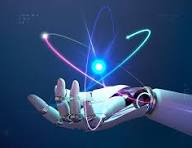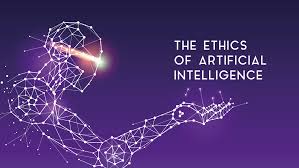In the landscape of technological innovation, few fields have seen as rapid and transformative growth as artificial intelligence. As we navigate through 2025, AI has transcended its theoretical foundations to become deeply integrated into the fabric of our daily lives, reshaping industries and challenging our understanding of what machines can accomplish.
The Current State of AI
The AI systems of 2025 bear little resemblance to their predecessors of just five years ago. Today's models exhibit unprecedented capabilities in natural language understanding, visual perception, and decision-making processes that increasingly resemble human cognition.
Multimodal AI systems have become the standard, with the ability to process and correlate information across text, images, audio, and video simultaneously. This has enabled applications that can comprehend context and nuance in ways that were once the exclusive domain of human intelligence.
Perhaps most significantly, AI has developed stronger reasoning capabilities, moving beyond pattern recognition to demonstrate causal understanding and even limited forms of common sense reasoning. While still far from human-level general intelligence, these systems can now tackle problems that require connecting disparate pieces of information and drawing logical conclusions.
Transformative Impact Across Industries
The healthcare sector has been revolutionized by AI-powered diagnostic tools that can detect patterns in medical imaging that escape even trained human eyes. Predictive models now assist in treatment planning, drug discovery has been accelerated by AI systems that can simulate molecular interactions, and personalized medicine has become more accessible through AI analysis of individual genetic profiles.
In finance, algorithmic trading was just the beginning. Today's AI systems provide comprehensive financial planning, detect fraud with remarkable accuracy, and have made financial markets more efficient while simultaneously raising new regulatory challenges.
Education has been transformed through adaptive learning platforms that personalize instruction based on individual student needs, progress, and learning styles. AI tutors provide 24/7 support, and content generation tools help educators create tailored materials for their classrooms.
Manufacturing has entered a new era of efficiency with AI-optimized supply chains, predictive maintenance that virtually eliminates unplanned downtime, and collaborative robots that work alongside humans with enhanced safety and productivity.
The Technical Breakthroughs
Several key technical advances have enabled this AI revolution:
Foundation Models: These massive, pre-trained systems serve as the base for countless applications, requiring minimal fine-tuning to adapt to specific tasks. Their emergence has democratized access to sophisticated AI capabilities for organizations that lack the resources to train models from scratch.
Energy-Efficient Computing: New hardware architectures specifically designed for AI workloads have dramatically reduced the energy consumption of AI systems, addressing one of the field's most pressing sustainability concerns.
Explainable AI: Techniques that make AI decision-making processes more transparent have advanced significantly, enabling these systems to be deployed in high-stakes environments where accountability is essential.
Federated Learning: This approach allows AI models to be trained across multiple devices or servers while keeping data localized, resolving many privacy concerns that once hindered adoption.
Ethical Considerations and Societal Impact
The rapid advancement of AI technology has not been without controversy. Questions of bias in AI systems persist, despite significant progress in fairness techniques. The displacement of certain categories of jobs has accelerated, creating economic challenges even as new roles emerge.
Regulatory frameworks have struggled to keep pace with innovation, though international standards for AI ethics and safety have begun to coalesce. The question of AI rights remains largely theoretical but is increasingly discussed as systems demonstrate more sophisticated capabilities.
Perhaps most importantly, the concentration of AI power among a small number of technology companies and nations has raised concerns about digital colonialism and created new dimensions of geopolitical competition.
Looking Forward
As we look to the future, several trends are likely to shape the continued evolution of AI:
The integration of AI with other emerging technologies, particularly quantum computing and biotechnology, promises entirely new capabilities and applications.
Self-improving AI systems that can enhance their own code represent both tremendous opportunity and significant risk, demanding careful governance and safety measures.
The development of truly general AI remains a distant but influential goal, driving research while raising fundamental questions about humanity's unique place in an increasingly intelligent technological ecosystem.
In conclusion, AI in 2025 stands at a fascinating intersection of technical achievement, industrial transformation, and societal adaptation. The coming years will undoubtedly bring further surprises and challenges as we continue to explore the frontiers of artificial intelligence.





Comments (24)
Leave a Comment
Sarah Johnson
May 5, 2025 at 14:35This is an excellent analysis of where AI stands today. I'm particularly interested in the ethical implications of self-improving systems. Has there been any significant regulatory progress in this area specifically?
Michael Chen
May 5, 2025 at 10:22I work in healthcare AI development, and I can confirm that the pace of innovation has been astounding. We're now able to predict certain conditions weeks before clinical symptoms appear. However, I think the article could have touched more on data privacy concerns, which remain a significant hurdle.
Emily Rodriguez
May 4, 2025 at 23:17As someone who's been studying AI ethics, I appreciate the balanced approach this article takes. It's important to highlight both the tremendous potential and the legitimate concerns around AI development. Great read!